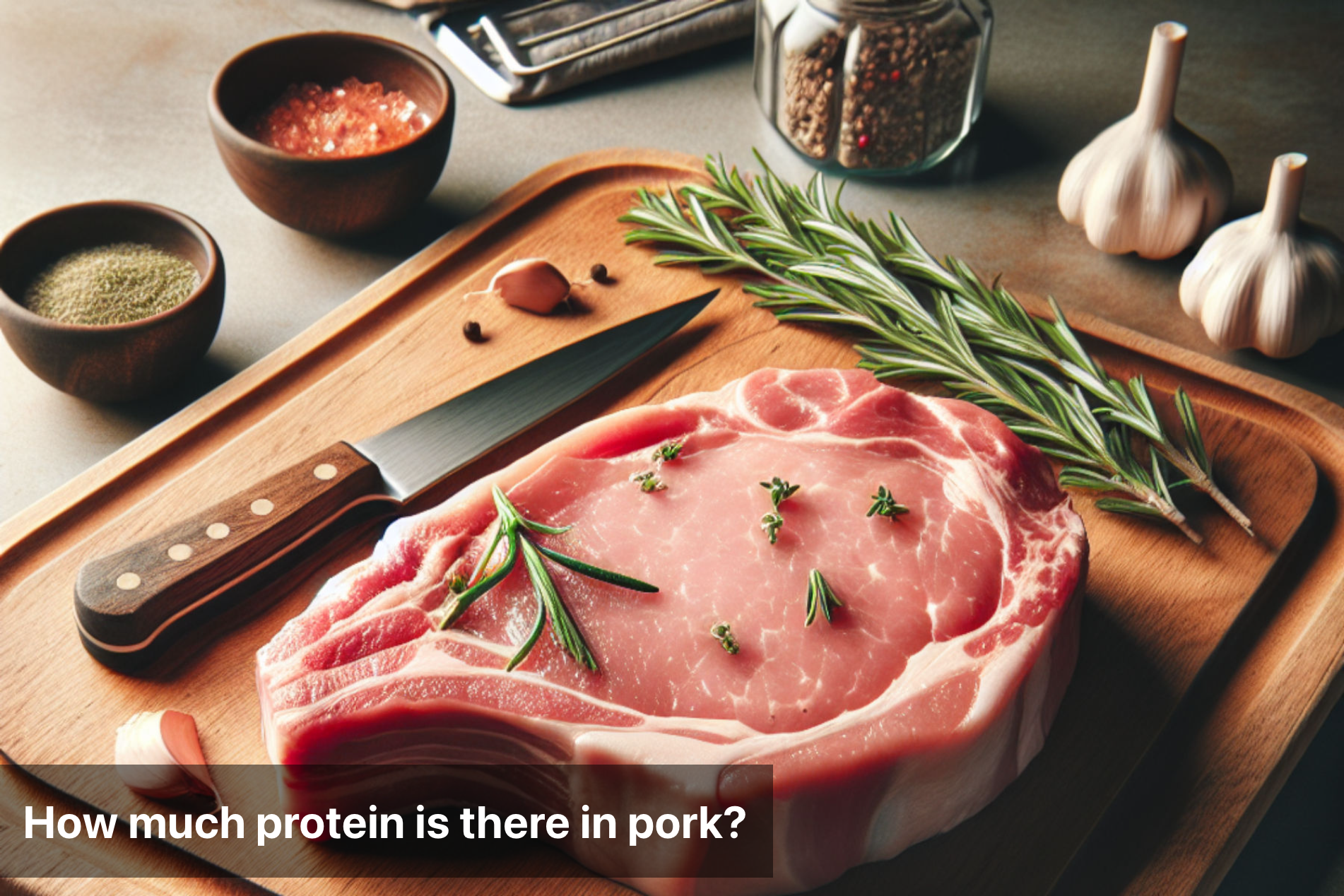
How much protein is there in pork?
Protein is an essential nutrient that plays a crucial role in maintaining overall health. When it comes to protein sources, pork stands out as a versatile and flavorful option that can be incorporated into various meals.
Pork is not only rich in protein but also provides an array of essential nutrients like vitamins and minerals. This makes it a well-rounded choice for individuals looking to meet their daily protein requirements while enjoying a delicious meal. Whether it's a lean pork chop or a succulent pork tenderloin, there are numerous cuts of pork that offer high-quality protein content.
In addition to its protein content, pork is also a good source of amino acids, which are the building blocks of protein. These amino acids play a vital role in supporting muscle growth and repair, making pork an excellent choice for individuals with active lifestyles or fitness goals.

Nutrition Content in Pork
A 3.5-ounce (100-gram) serving of cooked, ground pork provides:
Calories |
297 |
Water |
53% |
Protein |
25.7 grams |
Carbs |
0 grams |
Sugar |
0 grams |
Fiber |
0 grams |
Fat |
20.8 grams |
Health Benefits of Pork Protein
Consuming pork protein offers a range of health benefits, making it a valuable addition to your diet. Protein in pork plays a crucial role in muscle building and weight management.
Protein is essential for muscle repair and growth. Pork protein provides the necessary amino acids required for the development of lean muscle mass and overall strength. Incorporating pork into your diet can aid in post-workout recovery, enabling your muscles to recover and grow effectively.
Moreover, pork protein can be beneficial for weight management. Including lean cuts of pork in your meals can help increase satiety, keeping you feeling full for longer periods. This can lead to reduced snacking and better control of calorie intake, supporting weight loss or maintenance goals.
Pork protein is a rich source of nutrients such as iron, zinc, and B-vitamins, which are vital for overall health and well-being. These nutrients contribute to energy production, immune function, and metabolic processes in the body.
Incorporating pork protein into your balanced diet can promote muscle development, aid in weight management, and provide essential nutrients for optimal health.
Incorporating Pork into a High-Protein Diet
When it comes to incorporating pork into a high-protein diet plan, there are numerous delicious and healthy ways to enjoy this protein-rich meat. Pork can be a versatile and tasty addition to your meals, providing essential nutrients while keeping your taste buds happy. Here are some tips and recipes to help you maximize the protein content in pork and create well-rounded, satisfying dishes:
Lean Cuts: Opt for lean cuts of pork such as tenderloin, loin chops, or sirloin roast to reduce saturated fat intake while still benefiting from high protein content.
Marination: Marinate pork cuts with flavorful herbs, spices, and acidic ingredients like citrus juice or vinegar to enhance taste and tenderness without adding extra calories.
Grilled Pork Skewers: Prepare delicious pork skewers by marinating lean pork pieces in a tangy sauce and grilling them with colorful vegetables for a protein-packed meal.
Stir-Fried Pork and Veggies: Create a quick and nutritious stir-fry by combining lean pork strips with an assortment of veggies in a savory sauce, served over brown rice or quinoa for a balanced meal.
-
Pork Tenderloin Salad: Slice roasted pork tenderloin thinly and add it to a fresh salad with leafy greens, cherry tomatoes, avocado, and a light vinaigrette for a refreshing high-protein dish.
Incorporating pork into your high-protein diet can be both delicious and beneficial for your nutritional needs. Experiment with different cuts and cooking methods to discover your favorite ways to enjoy this protein-rich meat while maintaining a balanced diet.

Pork Protein: How Much Protein per Serving?
It is evident that pork is a valuable source of protein that plays a crucial role in maintaining a healthy diet. The protein content in pork is substantial, making it a reliable option for meeting daily protein requirements. Including pork in your diet can contribute to muscle growth, repair, and overall health.
Furthermore, pork protein offers essential amino acids necessary for various bodily functions, promoting overall well-being. It is important to note that the protein content in pork varies slightly across different cuts, so choosing leaner cuts can be beneficial for those monitoring their fat intake.
Incorporating pork into a balanced diet can help individuals achieve their protein goals while enjoying delicious and versatile meal options. Whether grilled, roasted, or stir-fried, pork provides a flavorful protein source that can be part of a nutritious meal plan.
Overall, understanding the significance of protein in pork and its role in a healthy diet underscores the importance of including this nutrient-dense meat in your culinary repertoire. Make informed choices about your protein sources, and savor the benefits that pork can offer to support your well-being.
This Blog post is an initiative by Lo! Foods, to provide accurate and Nutritionist / Doctor approved information related to Health. Lo! Foods is India's leading brand for Everyday Functional Foods. Foods designed for specific Health conditions or Needs. Lo! Foods also runs India's largest range of Low Carb Healthy Cloud Kitchens, under the brand names of Lo!, ProteinChef, ATH (All Things Healthy) and DiabeSmart.















Leave a comment
Your email address will not be published.